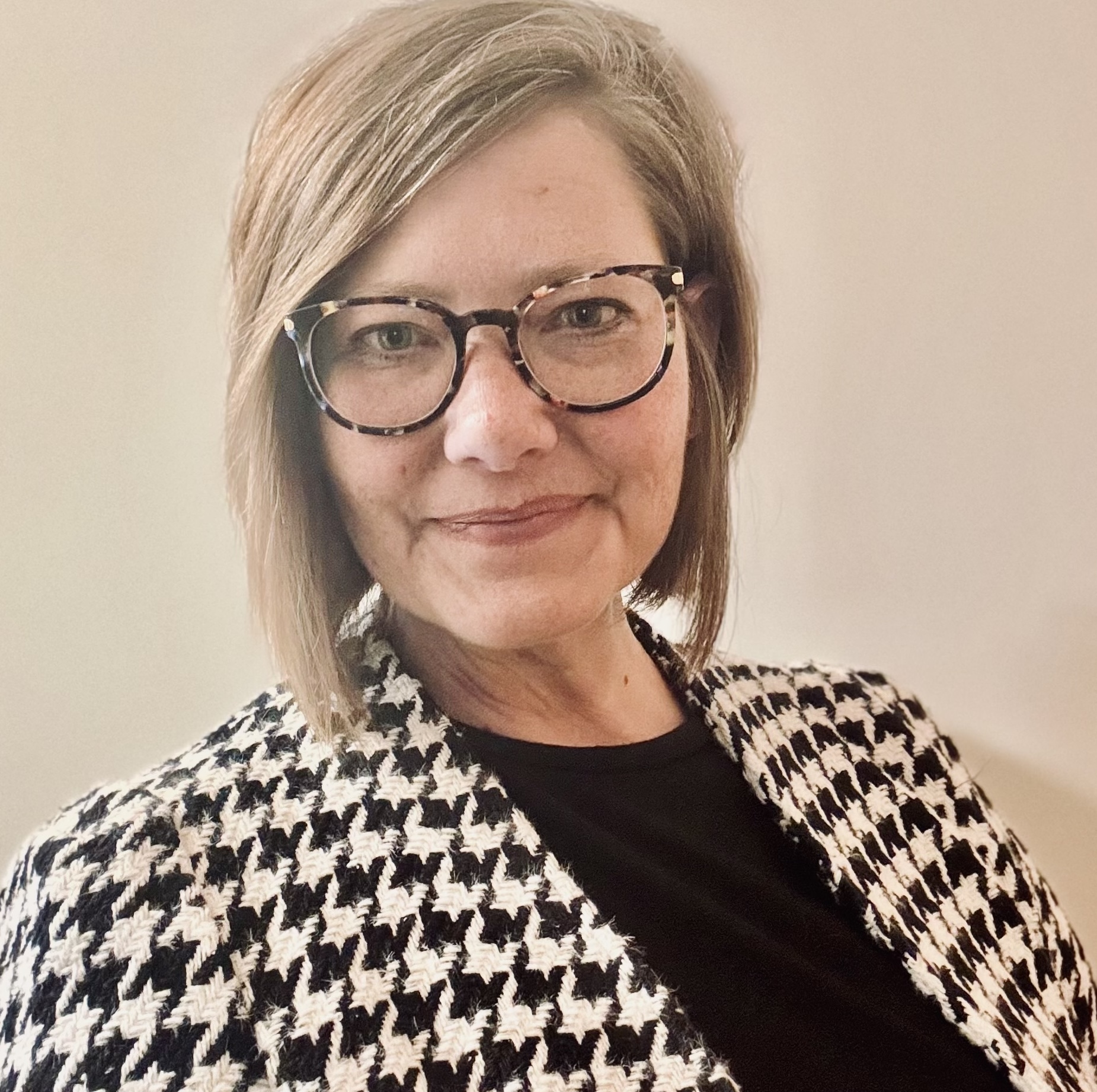Interveners and Qualified Personnel
This initiative works to increase the number and build the knowledge and skills of personnel who serve children and youth who are deafblind (birth – 21). In particular, we focus on expanding personnel development opportunities for both early intervention providers (Part C) and educators (Part B). And we promote and support the increased adoption of interveners and teachers of the deafblind throughout the U.S.
Initiative Contacts


Open Hands, Open Access (OHOA): Deafblind Intervener Learning Modules
The Open Hands, Open Access (OHOA): Deafblind Intervener Learning Modules are a set of 27 modules designed to increase awareness, knowledge, and skills related to intervention for students (ages 3 through 21) who are deafblind. Although originally intended only for intervener training, many state deafblind projects and university faculty have also found them useful for training teachers, related service providers, and families.
NCDB currently maintains these modules and provides support to state deafblind projects and university programs that use them for personnel development.
Personnel Development
A key goal of NCDB is to develop and strengthen personnel development opportunities for early intervention providers, teachers, and related service providers to enable them to implement high-quality practices with children who are deafblind, as well as encourage local, state, and national policies and practices that promote qualified personnel.
Early Intervention (Part C)
Support for state deafblind projects in this area involves:
- Consultation on developing training opportunities for early intervention providers using The Sooner the Better: A Framework for Training Early Intervention Practitioners on Deaf-Blindness, which offers a collection of online resources for developing customized training
- A peer-learning community (PLC) to work on issues related to personnel development for Part C providers
Tools for TA
Teaching Children Who Are Deafblind: Professional Development for Educators
OSEP Impact Story: Making a Difference
The Sooner the Better: A Framework for Training Early Intervention Practitioners on Deaf-Blindness
Division for Early Childhood (DEC) Recommended Practices (External Resource)
Professional Development Opportunities
School Age (Part B)
NCDB activities to support and expand personnel development opportunities across the nation include:
- Provision of resources that can be used by state deafblind projects for personnel development
- Support for universities to develop or strengthen credit-based courses on deafblindness
- Support for collaboration between university personnel preparation programs
- A national community of practice (National Deaf-Blind Educator Network) for teachers of students who are deafblind
- Messaging about training opportunities offered by organizations and agencies
- Provision of resources and training on coaching and adult learning strategies
Tools for TA
Council for Exceptional Children Teacher Competencies (External Resource)
NCDB Products and Resources
Teaching Children Who Are Deafblind: Professional Development for Educators
Foundational Knowledge in Deaf-Blindness Modules
Literacy for Children Who Are Deaf-Blind: Building a Foundation [Module]
Teacher Preparation Programs: Deaf-Blindness
NCDB Resources for Personnel Preparation Coursework
Professional Development Webinar Series: Research In Deaf-Blindness
Coaching Practitioners of Children Who Are Deaf-Blind
Training Opportunities
Professional Development Opportunities
Perkins School for the Blind eLearning (External Resource)
Helen Keller National Center Professional Learning (External Resource)
Early Intervention (Part C)
Support for state deafblind projects in this area involves:
- Consultation on developing training opportunities for early intervention providers using The Sooner the Better: A Framework for Training Early Intervention Practitioners on Deaf-Blindness, which offers a collection of online resources for developing customized training
- A peer-learning community (PLC) to work on issues related to personnel development for Part C providers
Tools for TA
Teaching Children Who Are Deafblind: Professional Development for Educators
OSEP Impact Story: Making a Difference
The Sooner the Better: A Framework for Training Early Intervention Practitioners on Deaf-Blindness
Division for Early Childhood (DEC) Recommended Practices (External Resource)
Professional Development Opportunities
School Age (Part B)
NCDB activities to support and expand personnel development opportunities across the nation include:
- Provision of resources that can be used by state deafblind projects for personnel development
- Support for universities to develop or strengthen credit-based courses on deafblindness
- Support for collaboration between university personnel preparation programs
- A national community of practice (National Deaf-Blind Educator Network) for teachers of students who are deafblind
- Messaging about training opportunities offered by organizations and agencies
- Provision of resources and training on coaching and adult learning strategies
Tools for TA
Council for Exceptional Children Teacher Competencies (External Resource)
NCDB Products and Resources
Teaching Children Who Are Deafblind: Professional Development for Educators
Foundational Knowledge in Deaf-Blindness Modules
Literacy for Children Who Are Deaf-Blind: Building a Foundation [Module]
Teacher Preparation Programs: Deaf-Blindness
NCDB Resources for Personnel Preparation Coursework
Professional Development Webinar Series: Research In Deaf-Blindness
Coaching Practitioners of Children Who Are Deaf-Blind
Training Opportunities
Professional Development Opportunities
Perkins School for the Blind eLearning (External Resource)
Helen Keller National Center Professional Learning (External Resource)
Teachers of Students Who Are Deafblind
Although, there are individuals in most states with education and expertise in deafblindness, there are very few actually recognized as teachers of the deafblind (TDBs). Efforts are underway to address this deficit by promoting training, certification, and recognition of teachers in this role.
NCDB activities include:
- Partnering with teachers, state deafblind project personnel, personnel preparation program faculty, and families to raise awareness of this important issue
- Providing support to state deafblind projects that currently have or are working towards establishing the role of teacher of the deafblind
- Disseminating information about TDB models and processes to other state projects interested in establishing this specialty in their own states
Tools for TA
Increasing Recognition and Use of Qualified Personnel: State Success Stories
Teachers of Students Who Are Deafblind (TDB) – Texas Deafblind Project (External Resource)
Collaboration to Ensure Effective Education of Students who are Deafblind (see p. 26) (External Resource)
Qualified Personnel for Children with Low-Incidence Disabilities Focus on Deaf-Blindness
Offline Resource
Parker, A. T., & Nelson, C. (2016). Toward a comprehensive system of personnel development in deafblind education. American Annals of the Deaf, 161(4), 486–501.
Interveners
Interveners provide consistent one-to-one support to help students with deafblindness gain access to information and communication and facilitate the development of their social and emotional well-being. In educational environments, they are typically paraeducators who work under the direction of the classroom teacher.
The Recommendations for Improving Intervener Services (2012) form the foundation for NCDB’s intervener services activities.
Intervener Recommendations
A skilled intervener can facilitate access to environmental information, communication and social and emotional well-being.
Recognition
A primary focus of NCDB's current work related to interveners is to assist state deafblind projects as they work on the adoption of intervener services in their states and build training and coaching systems. This includes support and tools for engaging in systems-change activities that promote:
- Understanding and acceptance of the intervener role
- Inclusion of policies related to intervener services in state regulations
- Successful adoption of interveners
A number of projects are already leaders in these areas, as described in Increasing Recognition and Use of Interveners: State Success Stories
Tools for TA
Intervener Services and Interveners in Educational Settings: Definition
Tools to Employ and Support Interveners
Increasing Recognition and Use of Qualified Personnel: State Success Stories
Letter from Ruth Ryder on Interveners as a Related Service (External Resource)
Parent Perspectives on Interveners
Are Intervener Services Appropriate for Your Student with Deaf-Blindness?: An IEP Team Discussion Guide (Spanish)
Training
In the United States, state deafblind projects and university certificate programs are the primary sources of intervener training. Coaching and supervision, in addition to coursework, are essential. NCDB provides:
- Consultation and technical support to state deafblind projects and university programs using the OHOA modules for intervener training
- A peer-learning community (PLC) of state deafblind project personnel currently training interveners who meet to share challenges, expertise, and strategies
Tools for TA
2022 Council for Exceptional Children Competencies for Interveners (External Resource)
Open Hands, Open Access (OHOA): Deaf-Blind Intervener Learning Modules
Intervener Training Resources for State Deafblind Projects
Pathways for Intervener Training in the United States (External Resource)
Intervener Training Private Basecamp PLC
Coaching Practitioners of Children Who Are Deafblind
Training Programs
Central Michigan University Deafblind Intervener Undergraduate Certificate (External Resource)
Utah State University Deafblind Intervener Training Certificate (External Resource)
Deafblind Intervener Training Certificate (California) (External Resource)
Shawnee State University Intervener Certificate Program (Ohio) (External Resource)
Certification
State and national certification and credentialing of interveners is a growing trend in the U.S. for individuals who have completed an intervener training program and can demonstrate their attainment of the CEC knowledge and skill competencies.
Current national credentialing options are show to the right.
NCDB's role related to the National Intervener Certification E-Portfolio (NICE) ended September 30, 2023. For more information see Important Update Regarding NICE Certification.
Tools for TA
- National Intervener Credential – National Resource Center for Paraeducators (NRCP)
- NIAA National Intervener Credential – National Intervener & Advocate Association (NIAA)
Recognition
A primary focus of NCDB's current work related to interveners is to assist state deafblind projects as they work on the adoption of intervener services in their states and build training and coaching systems. This includes support and tools for engaging in systems-change activities that promote:
- Understanding and acceptance of the intervener role
- Inclusion of policies related to intervener services in state regulations
- Successful adoption of interveners
A number of projects are already leaders in these areas, as described in Increasing Recognition and Use of Interveners: State Success Stories
Tools for TA
Intervener Services and Interveners in Educational Settings: Definition
Tools to Employ and Support Interveners
Increasing Recognition and Use of Qualified Personnel: State Success Stories
Letter from Ruth Ryder on Interveners as a Related Service (External Resource)
Parent Perspectives on Interveners
Are Intervener Services Appropriate for Your Student with Deaf-Blindness?: An IEP Team Discussion Guide (Spanish)
Training
In the United States, state deafblind projects and university certificate programs are the primary sources of intervener training. Coaching and supervision, in addition to coursework, are essential. NCDB provides:
- Consultation and technical support to state deafblind projects and university programs using the OHOA modules for intervener training
- A peer-learning community (PLC) of state deafblind project personnel currently training interveners who meet to share challenges, expertise, and strategies
Tools for TA
2022 Council for Exceptional Children Competencies for Interveners (External Resource)
Open Hands, Open Access (OHOA): Deaf-Blind Intervener Learning Modules
Intervener Training Resources for State Deafblind Projects
Pathways for Intervener Training in the United States (External Resource)
Intervener Training Private Basecamp PLC
Coaching Practitioners of Children Who Are Deafblind
Training Programs
Central Michigan University Deafblind Intervener Undergraduate Certificate (External Resource)
Utah State University Deafblind Intervener Training Certificate (External Resource)
Deafblind Intervener Training Certificate (California) (External Resource)
Shawnee State University Intervener Certificate Program (Ohio) (External Resource)
Certification
State and national certification and credentialing of interveners is a growing trend in the U.S. for individuals who have completed an intervener training program and can demonstrate their attainment of the CEC knowledge and skill competencies.
Current national credentialing options are show to the right.
NCDB's role related to the National Intervener Certification E-Portfolio (NICE) ended September 30, 2023. For more information see Important Update Regarding NICE Certification.
Tools for TA
- National Intervener Credential – National Resource Center for Paraeducators (NRCP)
- NIAA National Intervener Credential – National Intervener & Advocate Association (NIAA)